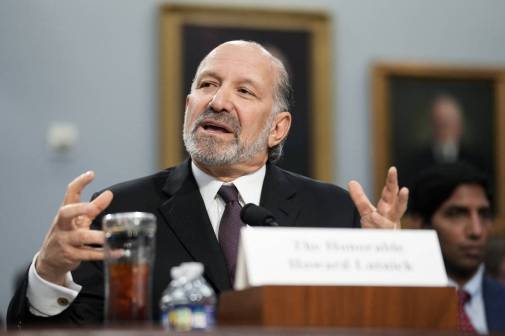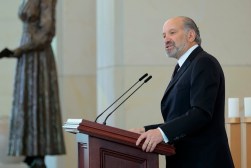Delaware will be first with universal broadband access, governor says

Delaware Gov. John Carney and other state officials announced at a press conference Thursday that their state is on track to be the first in the nation to offer universal access to high-speed internet.
Carney and officials, including state Chief Information Officer Greg Lane, provided updates on the state’s broadband expansion project, including how the state’s remaining $33 million in American Rescue Plan broadband funding will be spent. And as in other states, Delaware is also planning how to spend its even larger grant from the Broadband Equity Access and Deployment program.
Carney said the state’s ARPA funding will allow the state to provide internet access to nearly half of the state’s remaining 8,600 unserviced homes and businesses. Delaware is the fifth-least populous state at approximately 1 million residents.
“Our goal is to be the first state — because we are the First State — to have broadband extension, high-speed fiber to every Delawarean who could access that service,” Carney said. “… Early on in my administration and then through the pandemic, I learned how important our commitment bringing broadband extension to homes and families mostly in rural Delaware.”
Carney recalled visiting a farm and learning that digital technology and broadband internet is “critical and essential for [farmers] to do their work.”
Lane, the state CIO, said Delaware’s upcoming project to continue expanding internet service with the $33 million in ARPA funding “means thousands of people will be able to train for better, higher paying jobs. Thousands of students will be able to engage in remote learning. Thousands of seniors and others will be able to get access to better medical care through telehealth.”
Delaware, the nation’s second-smallest state geographically at 2,489 square miles, received approximately $107 million through the BEAD grant program. Lane said the state’s plan, which was published to its website earlier this month, shows how it intends to deliver universal access to its approximately 1 million residents.
The latest rounds of federal funding build on nearly a decade of work, Lane said, expanding Delaware’s fiber optic and wireless internet infrastructure. These projects include a 2017 pilot designed to link the state with private companies providing wireless internet to underserved areas.
Lane also pointed to a project during the pandemic in which the Department of Information Technology partnered with the state Department of Education and the Michigan telecommunications firm CTC Technologies to bolster internet and device access to students and educators. He said the state provided more than 25,000 free devices.
Delaware is in a similar planning stage seen in many other states, sketching out how best to connect as many residents as possible while distributing BEAD expansion projects to private companies. The federal funding amounts were informed in large part by the Federal Communications Commission’s broadband coverage map, which shows at least 8.5 million locations nationwide that still lack access to high-speed internet.






